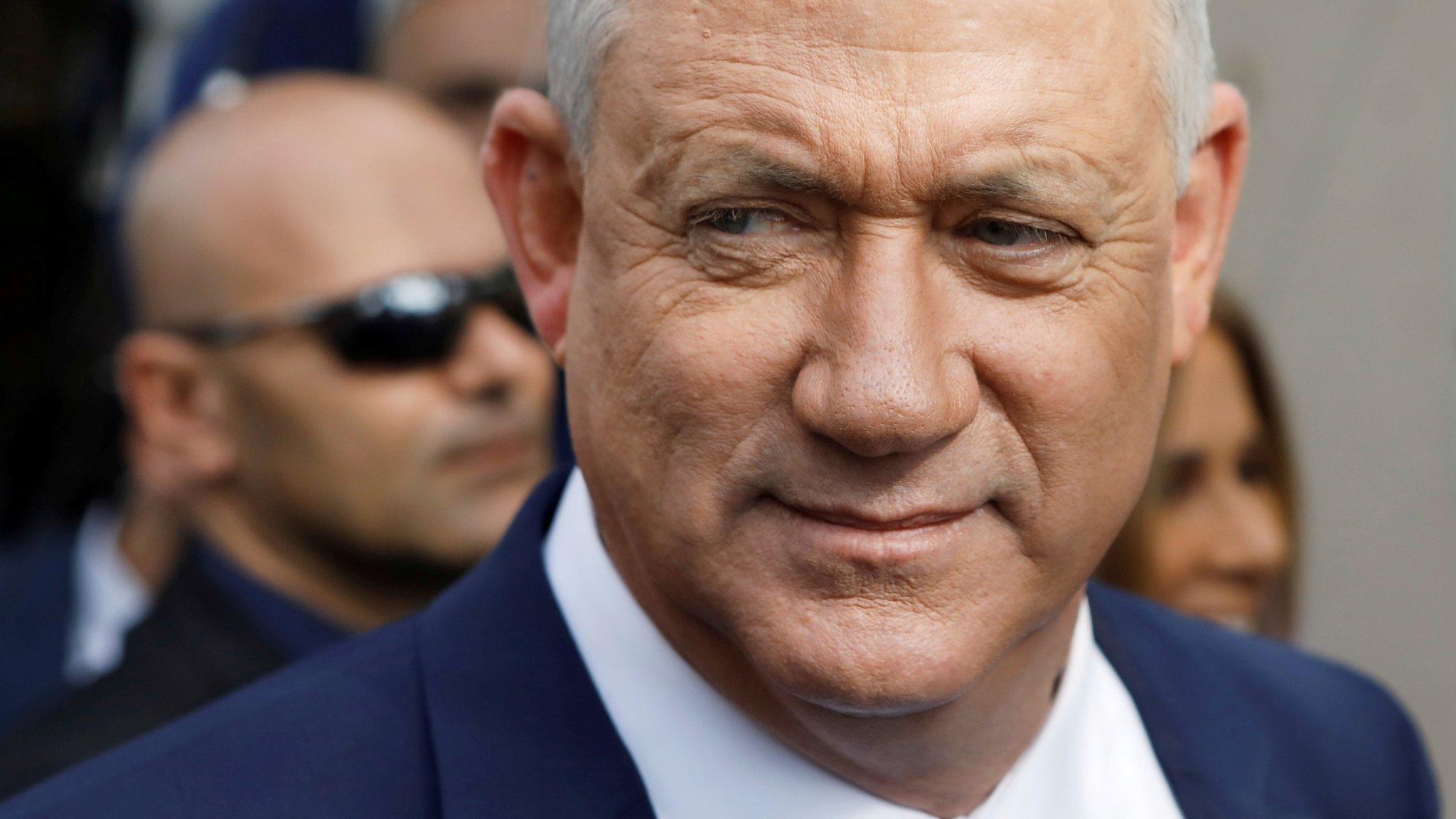Israel election: Gantz vows to form 'broad' unity government within days
- Published
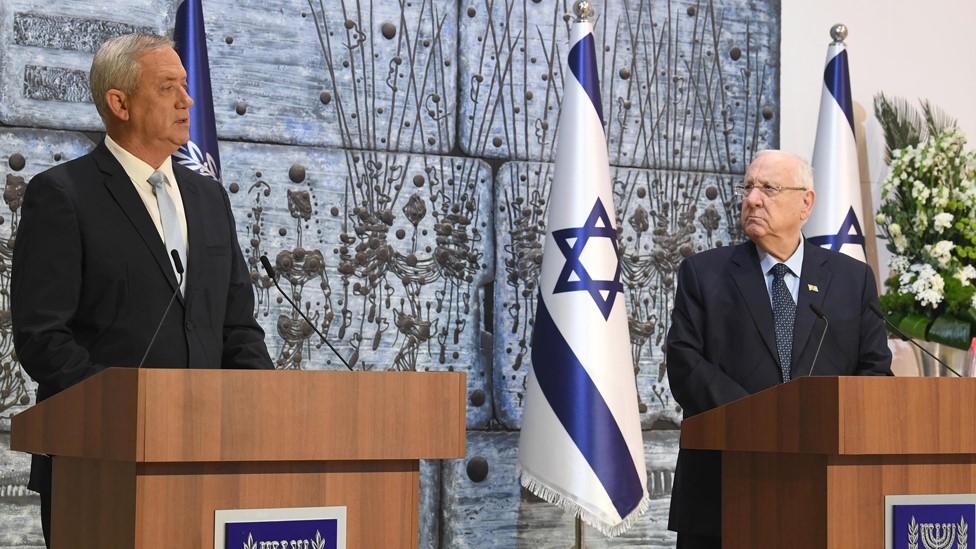
Benny Gantz hopes to form a national unity government, "as broad as possible", within days
Benny Gantz - the main rival to Prime Minister Benjamin Netanyahu - has been given the chance to form a new coalition government in Israel.
Mr Netanyahu's Likud party won more seats than Mr Gantz's Blue and White in the general election. But Mr Gantz was backed by a thin majority of lawmakers.
The former military chief vowed to form "a national unity government, as broad as possible, within days".
It comes as Israel confronts the coronavirus outbreak.
Much of the country has been brought to a standstill in an effort to contain 250 cases.
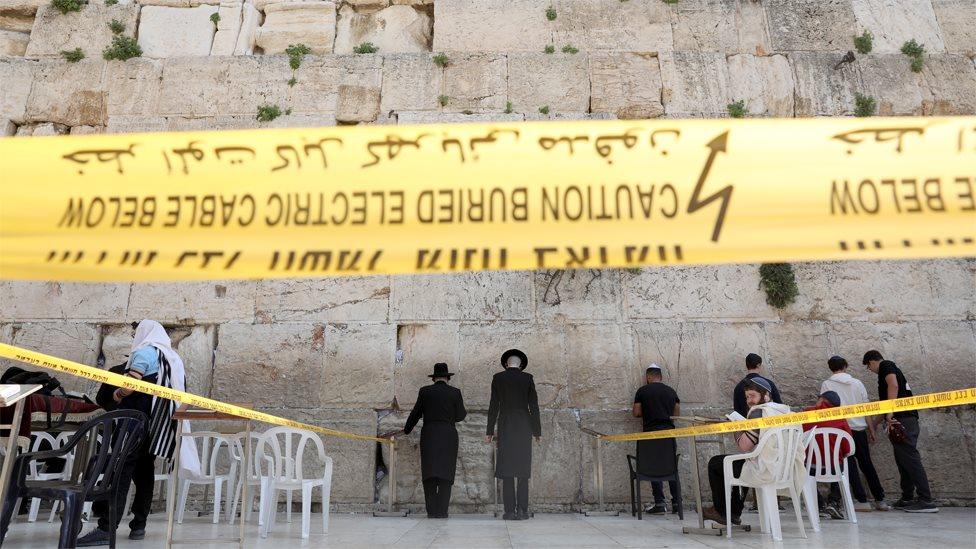
President Reuven Rivlin noted "the greatness of the challenges" facing Israel
More than 50,000 people have been placed in isolation; schools and universities have been closed; and gatherings of more than 10 people have been banned.
The opening of Mr Netanyahu's trial on corruption charges has also been delayed.
The Palestinians have reported 39 cases of Covid-19 - the disease caused by the new virus - in the occupied West Bank.
What is the background?
The election on 2 March was Israel's third in less than a year. Neither of the main party leaders was able to command a majority following the last two rounds.
This time, Likud won 36 seats, and allied right-wing and religious parties another 22. But that left Mr Netanyahu three short of a majority in the 120-seat Knesset.

Benjamin Netanyahu's Likud party won the most seats in the general election
Blue and White meanwhile won 33 seats; the Joint List representing Israel's Arab minority came third with 15 seats; the centre-left Labour-Gesher-Meretz list won seven; and the nationalist Yisrael Beitenu party also got seven.
Over the weekend, President Reuven Rivlin asked all parties about who they recommended he task with forming a governing coalition.
Sixty-one lawmakers supported Mr Gantz, including those from the Joint List and Yisrael Beitenu, compared to 58 for Mr Netanyahu. One lawmaker chose not to give a recommendation.
Mr Netanyahu had proposed that he lead a "national emergency" government for six months to confront the Covid-19 crisis.
What happened on Monday?
Mr Rivlin officially gave the Blue and White leader the mandate.
Noting "the greatness of the challenges facing us", the president urged Mr Gantz and "all elected officials" to move swiftly to form a government.
"A fourth election is impossible at this time of crisis," he warned.
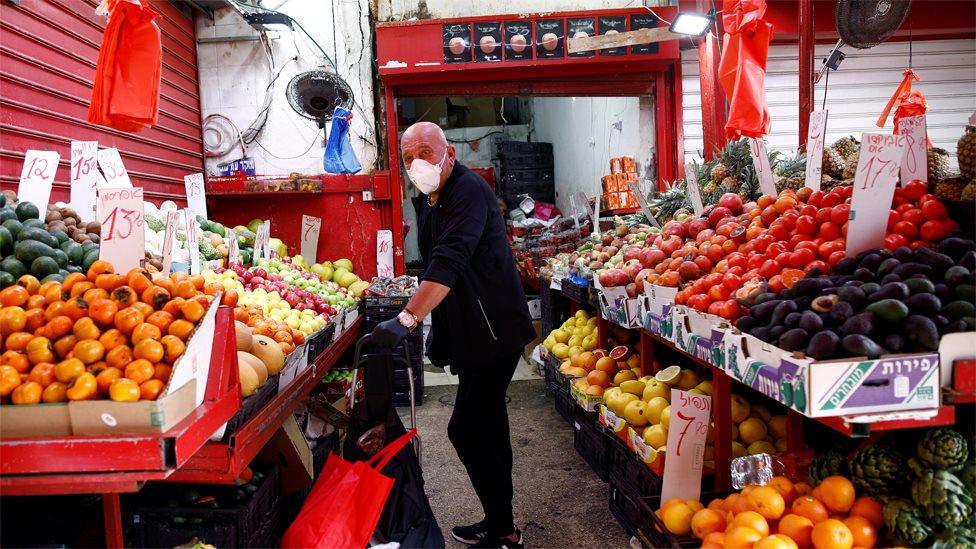
Much of Israel has been brought to a standstill after 250 Covid-19 cases were confirmed
Mr Gantz will have 28 days to try to form a coalition, after which he may ask for a 14-day extension.
After receiving the mandate, he said: "I will serve the voters of all of the parties and all the citizens of Israel. I will lead the effort to heal the Israeli society of the coronavirus, as well as from the virus of hatred and division.
"These are not normal days," he added. "Leaders must put aside personal considerations."
It is not yet clear who could form an eventual unity government as the parties that endorsed Mr Gantz have little in common. Mr Gantz called on Mr Netanyahu to agree to a unity deal but the Likud party has rejected the idea.

A SIMPLE GUIDE: What are the symptoms?
SYMPTOMS: Should I self-isolate?
HEALTH MYTHS: The fake advice you should ignore
MAPS AND CHARTS: Visual guide to the outbreak

Meanwhile, Mr Gantz also criticised what he said were "the illegitimate efforts by the current prime minister to evade justice".
Mr Netanyahu had been due in court on Tuesday to face charges of bribery, fraud and breach of trust in connection with three separate cases. But the hearing has now been postponed until at least 24 May because of the Covid-19 outbreak.
The prime minister is alleged to have accepted gifts from wealthy businessmen and dispensed favours to try to get more positive press coverage. He has denied any wrongdoing, saying he is the victim of a politically motivated "witch hunt".
The BBC's Tom Bateman in Jerusalem says the backing for Mr Gantz is a blow to Mr Netanyahu, but that it does little to break the deadlock that has paralysed Israeli politics.
Most MPs supported giving Mr Gantz the first go at putting together a coalition, but their appetite to dislodge Mr Netanyahu is all some of them really agree on, our correspondent adds.
- Published9 March 2020
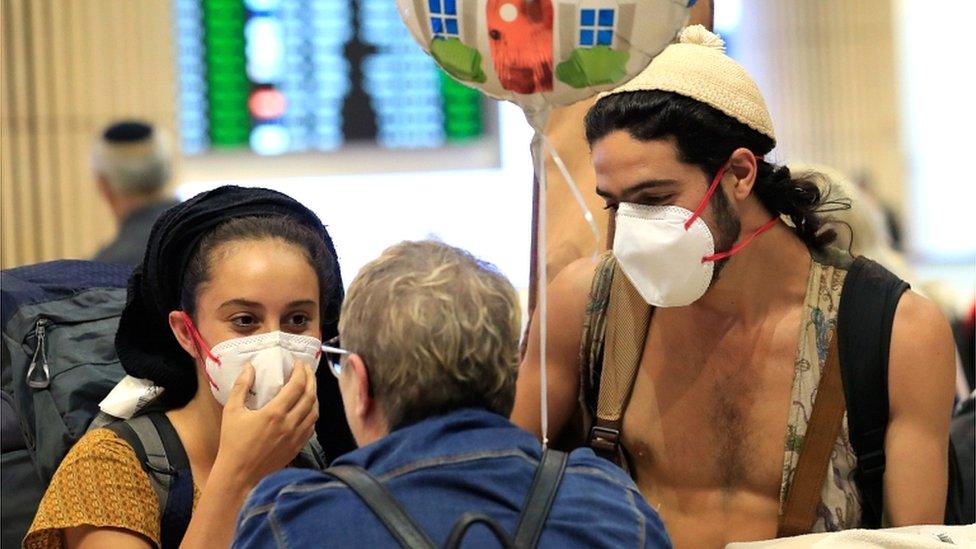
- Published1 March 2020

- Published28 January 2020

- Published21 November 2019

- Published21 November 2024

- Published14 May 2020
